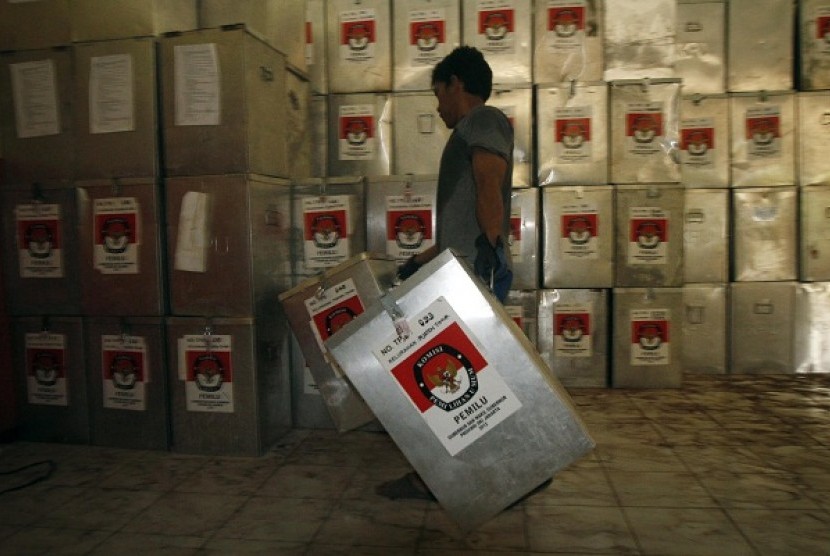REPUBLIKA.CO.ID, DENPASAR - President-elect Joko Widodo offers his support to people to file lawsuit against regional elections bill (known its local abreviation as RUU Pilkada) to Constitutional Court (MK).
"I encourge people to file lawsuit against RUU Pilkada since the parliament's decision harms people's rights," Jokowi stated on Saturday.
He uttered that direct elections guaranteed people's rights. "Without direct election, i wouldn't have been a mayor, governor, or president as you see today," Jokowi said then adding that he believed majority of Indonesians preferred direct to indirect elections. Jokowi will take office on Oct. 20.
Earlier on Friday, Indonesia's parliament approved a measure ending direct elections for governors and mayors. Indonesia introduced direct elections for regional leaders in 2005, allowing the emergence of a new breed of politician free of links to the political elite, with Jokowi being the best-known example.
But direct elections in Indonesia, Southeast Asia's largest economy and the world's third largest democracy, have also proven to be costly, and in many cases, corrupt.
"More than 60 percent of regional leaders were linked to corruption cases because they have spent a lot of money," indoko Dahono Wingit, a lawmaker with the Gerindra party that voted for the bill, argued.
"This is the new reality, the time to evaluate our system."
Despite strong public opposition, a divided parliament passed the bill giving legislative assemblies the power to choose local leaders. Some opinion polls before the vote showed that up to 91 percent of Indonesians favored direct elections.
Indonesian stocks fell more than 1 percent after the vote.
The vote followed a marathon session that occasionally turned rowdy, with the party of outgoing president Susilo Bambang Yudhoyono walking out in protest after its amendments were excluded. Yudhoyono said he would respect parliament's decision, but his Democratic Party would launch a legal challenge to the legislation.
Regional Autonomy Watch, a domestic non-government body, also said it will file a suit in the Constitutional Court. The result was a blow to Jokowi's Indonesian Democratic Party-Struggle, which failed to secure the political support needed to scuttle the legislation. The party's coalition is in a minority in the next parliament.
"(This) highlights the enormous political challenges that lie ahead for the Jokowi government," Bahana Securities said in a research note.
But Jokowi advisers did not expect the bill to have a significant effect on how they govern. Jokowi's party is the largest in 55 percent of the country's 34 local legislatures, analysts said.
Indonesia, home to the world's largest Muslim population, has embraced democratic reform since the downfall of autocratic leader Suharto in 1998. This year's presidential election, the closest ever in the country's history, went off without major violence or military intervention. The smooth transition was a contrast to developments in other Southeast Asian countries, such as Thailand and Cambodia, which have both seen political turmoil this year.



Komentar
Gunakan Google Gunakan Facebook